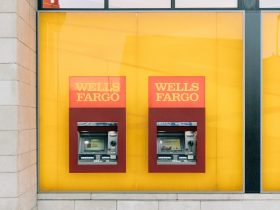In today’s financial landscape, ethical lending has gained significant attention and importance. As consumers become more conscious of the impact their financial decisions have on society and the environment, they are seeking lending options that align with their values. This comprehensive guide aims to explore the concept of ethical lending, its significance, and the various options available for individuals looking to borrow money responsibly.
Understanding Ethical Lending
Defining ethical lending
Ethical lending refers to the practice of providing loans and financial services that prioritize social and environmental considerations. It involves lending institutions that operate in a manner that promotes transparency, fairness, and sustainability, while also taking into account the well-being of borrowers and the wider community.
Importance of ethical lending
Ethical lending plays a crucial role in promoting sustainable economic development, social justice, and environmental responsibility. It ensures that lending practices do not exploit vulnerable individuals or contribute to harmful activities. By selecting ethical lending options, consumers can actively support institutions that uphold responsible lending practices and make a positive impact on society.
Ethical Lending Options
Community Development Financial Institutions (CDFIs)
CDFIs are specialized financial institutions that provide credit and financial services to underserved communities. These organizations are dedicated to fostering economic development, job creation, and wealth-building in low-income areas. CDFIs often offer affordable loans to individuals and small businesses that may not qualify for traditional bank loans, thereby promoting financial inclusion.
Socially Responsible Banks
Socially responsible banks are financial institutions that prioritize ethical practices and social impact. These banks invest in projects and initiatives that align with their values, such as renewable energy, affordable housing, and community development. By choosing a socially responsible bank, borrowers can ensure that their money is used in ways that benefit society and the environment.
Peer-to-Peer Lending Platforms
Peer-to-peer (P2P) lending platforms connect borrowers directly with individual lenders, cutting out traditional financial institutions. These platforms allow borrowers to access loans at competitive rates while providing lenders with the opportunity to earn interest on their investments. Some P2P lending platforms have specific ethical criteria for borrowers and lenders, ensuring that loans are used for socially responsible purposes.
Microfinance Institutions
Microfinance institutions (MFIs) provide small loans and financial services to individuals who lack access to traditional banking services. These institutions focus on empowering entrepreneurs in developing countries and underserved communities by offering microloans for business ventures. MFIs often prioritize social impact and financial inclusion, supporting borrowers who aim to improve their lives and communities.
Green Loans
Green loans are specifically designed to finance environmentally friendly projects and initiatives. These loans support activities such as renewable energy installations, energy-efficient home improvements, and sustainable agriculture projects. Green loans often come with favorable terms and conditions, incentivizing borrowers to invest in projects that contribute to a greener future.

Ethical Credit Unions
Credit unions are member-owned financial cooperatives that provide a range of financial services, including loans, to their members. Ethical credit unions prioritize their members’ financial well-being and often operate with a focus on sustainable and responsible lending practices. By joining an ethical credit union, borrowers can access loans while supporting a financial institution that aligns with their values.
Considerations for Choosing an Ethical Lending Option
Research and Due Diligence
Before choosing an ethical lending option, it is crucial to conduct thorough research and due diligence. Look for information about the institution’s mission, values, and lending practices. Consider their track record, transparency, and commitment to social and environmental responsibility.
Interest Rates and Terms
While ethical lending options prioritize social impact, it is still important to evaluate the interest rates and terms offered by different institutions. Compare rates, fees, and repayment terms to ensure that the loan is affordable and suits your financial situation.
Eligibility Criteria
Each ethical lending option may have specific eligibility criteria. Consider whether you meet the requirements and if the institution’s values align with your own. Some institutions may prioritize lending to underserved communities or specific types of projects, so understanding their focus is essential.
Customer Service and Support
Evaluate the customer service and support provided by the lending institution. Look for reviews and feedback from other borrowers to assess their experiences. A responsive and supportive institution can make the borrowing process smoother and more transparent.
Impact Reporting
Consider whether the lending institution provides impact reporting or transparency regarding the use of funds and the social and environmental outcomes. This information can give you confidence that your borrowing aligns with your values and contributes to positive change.
Conclusion
Ethical lending presents an opportunity for individuals to borrow money responsibly while supporting institutions that prioritize social and environmental impact. By exploring options such as community development financial institutions, socially responsible banks, peer-to-peer lending platforms, microfinance institutions, green loans, and ethical credit unions, borrowers can make informed decisions that align with their values. Conducting thorough research, considering interest rates and terms, evaluating eligibility criteria, assessing customer service, and understanding impact reporting are key factors in choosing the most suitable ethical lending option. By selecting an ethical lending option, borrowers can contribute to a more sustainable and equitable financial system while meeting their borrowing needs.

































